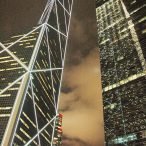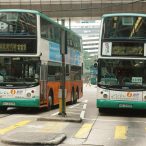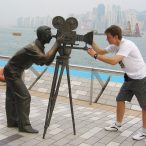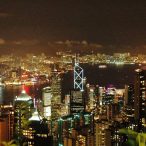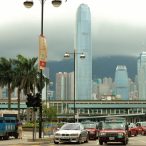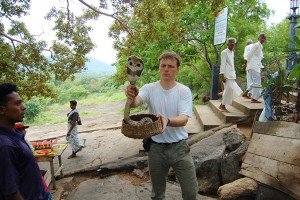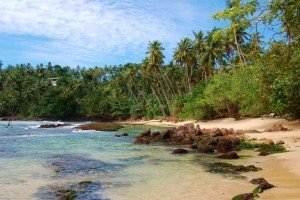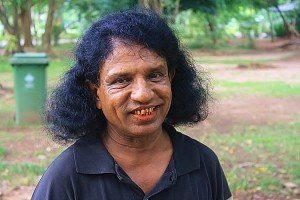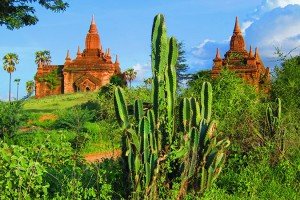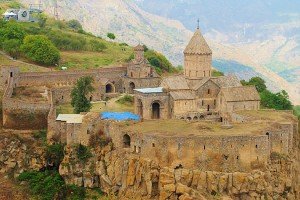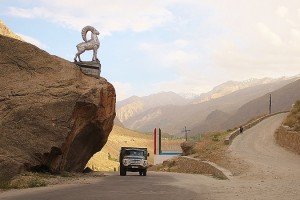Hong Kong
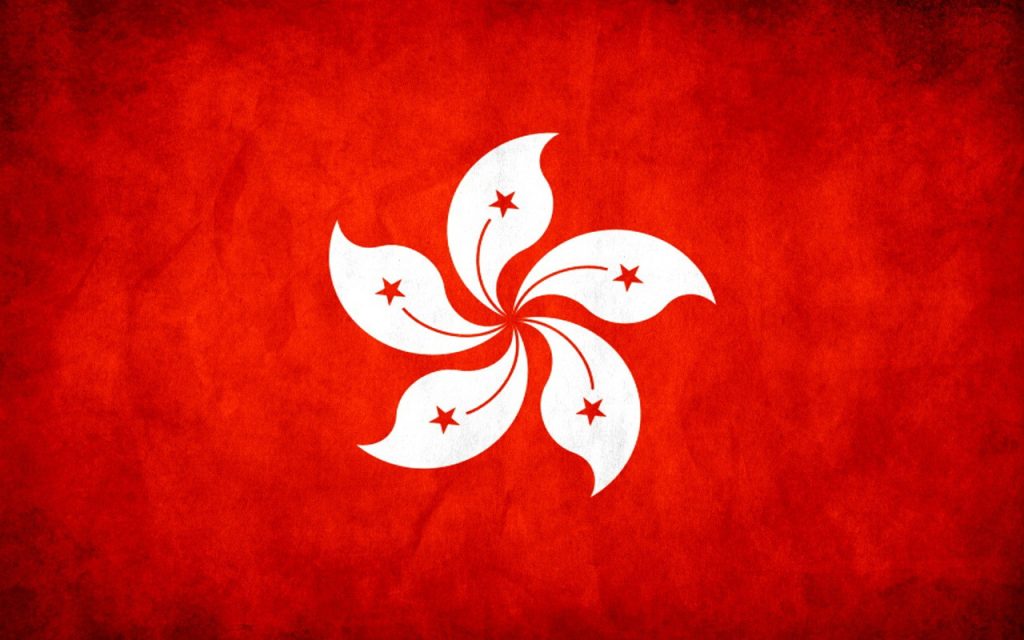
Official name: Special Administrative Region of Hong Kong
Population: 7 300 000
Area: 1 104 km²

Gallery
Tourist attractions of Hong Kong, Hong Kong – the present times, history of Hong Kong.
Tourist attractions of Hong Kong
In my opinion the biggest tourist attraction of Hong Kong is the city itself. On the other hand there are places and objects that should be seen. Assuming that our accommodation is in Nathan Road in Kowloon, what makes our presence there already an attraction. Breaking through a very tiring crowd of Indians offering suits and watches, we get to the Walk of Fame and its attractive business centre. Then we take a ferry to the island of Hong Kong where an avalange of glass skyscrapers, shopping malls and colonial architecture make us tired. From there, we get to Victoria Peak where we can have a beautiful view of the city and its financial power, Kowloon and the river. For art lovers and Buddhism I recommend Lantau island and its great statue of Buddha. Hong Kong also translates into good food, nice shopping and beautiful beaches in warm a climate. I’m sure everyone would find something appropriate.
Hong Kong – the present times
Introduction:
Hong Kong, which from the 30 July 1997 is the special administrative region of the People`s Republic of China, is located in the south-eastern part of China. The island of Hong Kong is located on the South China Sea, at the mouth of the Pearl River, but the territory of Hong Kong also includes Kowloon peninsula and several small islands. The largest of them apart from Hong Kong island are Lantau and Lamma. The strait separating the island from the peninsula is called Port Victoria, which is one of the deepest in the world. New territories occupy about 200 small islands and the entire territory of Hong Kong consists of 234 islands. The entire area of Hong Kong covers 1102km2 and only 25% of it is inhabited, although it is hard to believe in this whilst walking around the main shopping street in Kowloon. Most of Hong Kong is covered by parks and nature reserves and people live mostly in skyscrapers. Hong Kong is located close to Macau and Shenzhen.
Although Hong Kong(the same as Macao) is a part of China, it works under principle of “one country, two systems”, what means that it enjoys great freedom and independence. The government in Beijing is only responsible for defense and foreign affairs, while Hong Kong has its own immigration policy, its own police and its own currency. Thanks to independence from the communist “Great Chinese Brother” Hong Kong has been a leader for many years at: economy, income per citizen, education, and one of the longest life expectancies. In comparison to neighboring Macau, Hong Kong is bigger and built on a grand scale, what can be tiring after some time but it is a great experience. Hong Kong is one of the most populated regions in the world, although population does not shrink because of immigration. It is immigration mainly from China, but also from the poorest countries of Asia, such as: Philippines, Indonesia, Vietnam and Nepal. Hong Kong is so overcrowded that in certain places there are 43 000 people per km2.
Economy:
Hong Kong is the largest economic power in Asia and remains in the top ten of the world. Hong Kong`s economic strength has been built on years of China`s trade with the world and today it is one of the world’s trade and financial centres. At first glance, it can be seen standing on the shore of Kowloon and watching Hong Kong Island which houses the biggest banks in the world. A great benefit to Hong Kong`s economy is also brought by tourists from around the world and mainland China, benefiting from duty-free shopping. With a population of 7mln, Hong Kong has one of the highest rates of exports and imports per capita, and all other economic sectors, such as: construction, manufacturing, finance, insurance and real estate, and also transport (air and sea) is very well developed. In Hong Kong there is no minimum pay rate per hour. Earnings are a subject of demand for a service or product.
Hong Kong has also its own currency – well known in the world Hong Kong dollars. This currency has been linked to the U.S. dollar since 1983, what means that the bank can issue HK dollars only if they are equal to American dollars. Hong Kong’s economy is the freest market in the world, which among other things, allows huge foreign investment in its territory. In addition, Hong Kong’s economy is the sixth largest in the world in terms of revenue per citizen. Hong Kong is a leading country at: stock exchange, very low taxes, world renowned financial sector, one of the busiest seaports in the world, strict anti-corruption law, and almost zero public debt. Hong Kong has also a well-developed and favourable trade relations with China and the rest of the world.
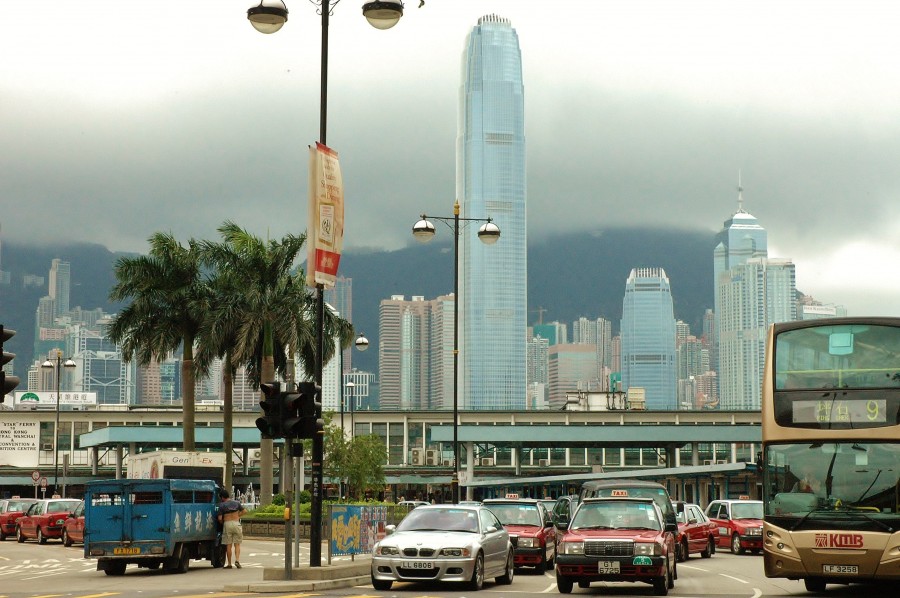
Traffic in Hong Kong.
Education:
Education in Hong Kong follows the English system, but there is also a national system. HK Government guarantees nine years of compulsory education, then non-compulsory two years. In Hong Kong there are many prestigious universities, of which the two largest are the University of Hong Kong and the Chinese University of Hong Kong. Teaching takes place in the mother tongue, which is Cantonese, although education is also set on English which is often used in the workplace. In 2012 Hong Kong’s education system has been rated as the third best in the world. (For a comparison, Britain is in the 6th place, and Poland on the 14th, but I would advise to not to believe in these data because the level of education in the UK is deliberately lowered to the educational level of Blacks, so that more people passes the exams and improve the ranking). Literacy in Hong Kong stands at only 93.5%, but only because of people from the Third World countries, where the average is much lower.
Health:
Hong Kong is one of the healthiest places in the world and its health system is also one of the leading ones. Hong Kong has a network of free, public hospitals and 12 private ones. Average life expectancy in HK is the second in the world (after Macau), where women live to an average of 86 years and men reach 80th birthday. Also infant mortality is on the fourth best place in the world. In Hong Kong there are also two medical schools, and the country has had its success in contributing to the development of liver transplantation.
Unfortunately the greatest threat to public health is HIV, and currently there are about 6,000 people in Hong Kong infected with the virus. The main reason is the growing plague of homosexuality, which does not only breed in Hong Kong, but it also comes from mainland China.
Culture/Religion:
The culture Hong Kong is the traditional Chinese culture with a strong British influence, and since the take over by the People’s Republic of China, the culture of Hong Kong continues to grow in its own direction. Hong Kong was ruled by the British Empire for 150 years, so taking into account the political and territorial isolation from the rest of China, the Hong Kong culture developed inits own way. It manifests itself in many ways, such as: through music, food, law, education, language, and mentality of the people. While in Hong Kong I talked to people about China. In general they laugh at them, but also admit that things in mainland China improve a little bit, because years ago they wore only green uniforms with red star on their foreheads, and now they can see some colour on them.
The main language is Cantonese but English is also widely used (especially at work). While HK was ruled for almost 150 years by Britain, the country is inhabited mainly by the Chinese. There is a religious freedom in Hong Kong and these are mainly Chinese religions such as Taoism, Buddhism and Confucianism, but also 10% of Christians (Catholics and Protestants). The other minorities are Muslims and Jews, although 57% of the Hong Kong population are atheists.
In Hong Kong digit “4” is highly avoided, because it is similar to the Chinese equivalent of word “death.” Highly popular in Hong Kong are also Japanese Manga comic books and films, and American animations, but Chinese comics are doing fine too. These are mainly drawings and films based on Chinese culture. This means mostly kung fu fighting characters, dressed in colourful costumes with dragons. In the Avenue of Stars there is a monument of Bruce Lee, who is the pride of Hong Kong, while next door there is a clock tower built in a typical British style. Other things which I would describe as the examples of Hong Kong culture are: Cantonese Opera, Chinese Opera, and kung fu and tai chi, which are often practiced by older people in the parks. In addition, all of these sports are also popular in the form of computer games. Hong Kong has been also reached by an integral part of a far-eastern culture, which are karaoke and gambling. I doubt however that someone bets on number “4”, because of superstition linked to death.
Media:
Freedom of the press and expression is one of the fundamental guarantees of Hong Kong, but after the takeover by China in 1997 there is less and less freedom. On the press freedom index Hong Kong is on a weak 54th place, but I’m sure that if Hong Kong was completely independent from China, it would stand very high. Media and journalists in Hong Kong feel a high pressure from China.
Environmental problems:
All Hong Kong environmental problems are caused by the rapid economic growth and big population in such a small area. Among many other things it leads to climate change, big accumulation of wastes, and air and water pollution. The big problem in Hong Kong is for example in increased water traffic, shores development, and the poisoning of water by industrial and traffic dirt. One of the biggest victims here is pink dolphin, which numbers have dropped dramatically. Other victims are for example birds and oyster farms because of pollution from the nearby Shenzhen. Air pollution has contribute to many cases of asthma; because of the overall traffic, diesel cars, and the ever growing industry. The average air temperature has risen because the concrete jungle trap poisonous heat from the traffic and industries.
In Hong Kong there are also massive tower blocks of up to 100 houses next to each other, and each one of them has over 80 floors. The result of it is, that there is no air to breathe, because the wind is not able to break through the vast walls of the concrete. Chinese from mainland China come to Hong Kong to hunt certain species of animals, because they’ve already killed many of them at home. One such species is the critically endangered golden coin turtle. For example, an alien species of insects exterminated a type of pine tree from Hong Kong.
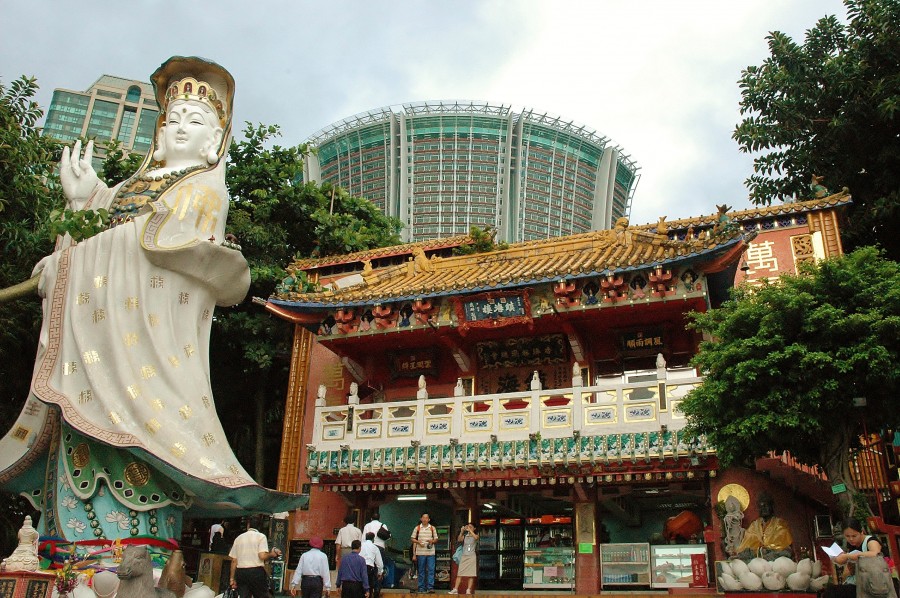
Temple complex. Hong Kong.
As we can see, in a way Hong Kong is still in the Third World, because when nature is murdered, no money on earth will buy health back.
History of Hong Kong
In 1842 a treaty was signed ending the first Opium War. One of its provisions was a take over of the Hong Kong island from China to Britain, and in the later years in the area of ??Hong Kong also swallowed in the “New Territories”. In 1898 an agreement was signed by Britain for a 99 year lease of the territories, and the city of Victoria (now the name of the peak on the island of Hong Kong) became the unofficial capital city of Hong Kong. In the twentieth century there was a rapid economic growth in Hong Kong, which was the economic and cultural bridge (but in my opinion also a huge gap) between Communist China and the West.
On July the 30th 1997 at midnight, the People`s Republic of China took over HK, but with provision of regional autonomy in all matters, except foreign policy and armed forces. To this date, this autonomy will last until 2047. Today, Hong Kong (the same as Macao) is a special administrative region of the People`s Republic of China.
Travel reports
Map
Location
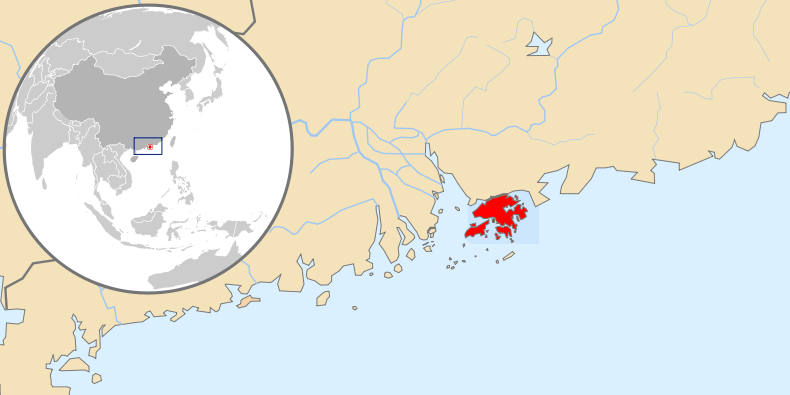
Practical information
Tourist Visa: Not required. All Europeans get a stamp at the airport, which entitles us to stay for 90 days.
Safety: safe country. You have to watch out for pickpockets and tricksters.
Getting around the country: very easy. The underground network is very well developed, and reaches all the main islands. Besides, there are buses and ferries.
Prices: (in 2006 when £1 = about 12HKD) it is more expensive than in mainland China but affordable even to those on low budgets. For a bed in a lowest class dorm I paid about $10, and for a decent room you would have to pay $50. Transport is rather cheap. Boat from Kowloon to HK island costs 1 – 2HKD. You can eat for $10 a day but this would be a really low budget.
Climate: Subtropical. In winter the temperature falls to about 10oC, and in summer it reaches more than 30oC. There is a considerable likelihood of typhoons of varying strength. The heaviest rains are during a period from May to September. I recommend Hong Kong especially at the end of the year (November and December) when it is sunny but the temperature is moderate.



